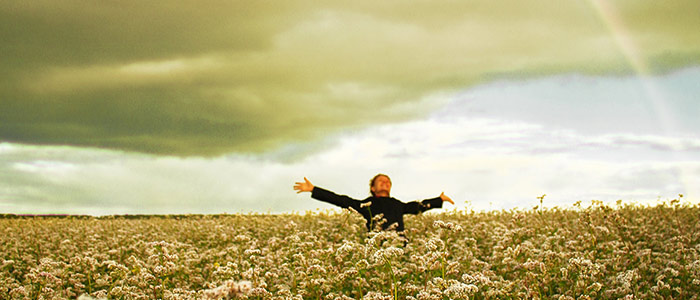The Science of Supreme Fulfillment: You are what you are Seeking!
We have no record of any rich and famous person making a definitive claim at the end of life that he has achieved the invariable happiness while chasing material goods. But we do have innumerable instances of seers and sages who have shown by their life example that they have attained the supreme fulfillment in this very life.
Nature in its infinite compassion has arranged the life experiences of us all in such a manner that we do not really get completely satisfied with any object, person, and experience. We keep hopping from one thing to another, one experience to the next in search of the proverbial Shangri-La, never really experiencing true happiness.
True happiness lies in contentment. As Seneca, the great stoic philosopher, said, “The greatest wealth is a poverty of desires.” It is a state when one discovers oneself to be puraṇa, full, which cannot to be improved upon. As long as one is running after things that can be improved upon, the chase continues. The state of fullness, puraṇa, is denoted by the word Brahman in Vedānta, the system that focuses on the concluding portions of the Vedas, the books of wisdom. The real import of the word Brahman is satyam, jñānam, anantam Brahma, Existence-Consciousness-Limitless Absolute. It is a state of limitlessness, fullness, and completeness. There is no becoming in that state, only being—being what one is in one’s real nature, svarūpa.
This should be suffice for any discerning person to realize that the font of happiness is not to be found looking outside; it is dis-covered turning within by tapping into one’s essential nature.
Self-realization is the greatest joy: It is everyone’s common experience that one loves one’s own self the most and unconditionally. And one loves everything else for the sake of one’s self. Since everything is loved for the sake of self, it stands to reason that the journey to fulfillment should begin with knowing the self. Being our very own self as the consciousness-principle, it is self-evident and hence self-proven. It is undeniable in the sense that to deny it would only serve to affirm its existence! It is actually the sole substratum of all that one experiences–for everything is experienced through consciousness/awareness, or, shall we say, in consciousness.
Self-knowledge is quite unlike anything else: The knowledge of everything else involves three things: 1. the knowing subject, the known object, and the process of knowing. However, in case of self-knowledge, all three merge into one–that is, the Knower or the knowing Subject. There is no separation between the knower and the known, the experiencer and the experienced. That is why it is often said that, to know the self, is to be the self. The seeker is the sought.
The journey to Self-knowledge, which is a voyage without distance, is from here to here. It is not a matter of attaining something new by going somewhere in future; it is a matter of knowing what we already are, right here right now. It is attaining the ever-attained through recognition and knowledge.
All the outer means remain subject to creation and destruction, hence mutable. Our inmost self which is of the nature of satchitānanda—existence, knowledge, bliss—is the only immutable Reality.
Watching the honey-bee getting trapped in honey-combs…one should realize not to waste one’s precious time in accumulating the means (साधन इकठ्ठे करने में) but utilize it in knowing the reality of one’s true Self (स्वयं को जानने में).
Only by recognizing our abundant self can we realize Supreme Happiness.
The rest, as they say, is all vanity and weariness of spirit.


Recent Comments